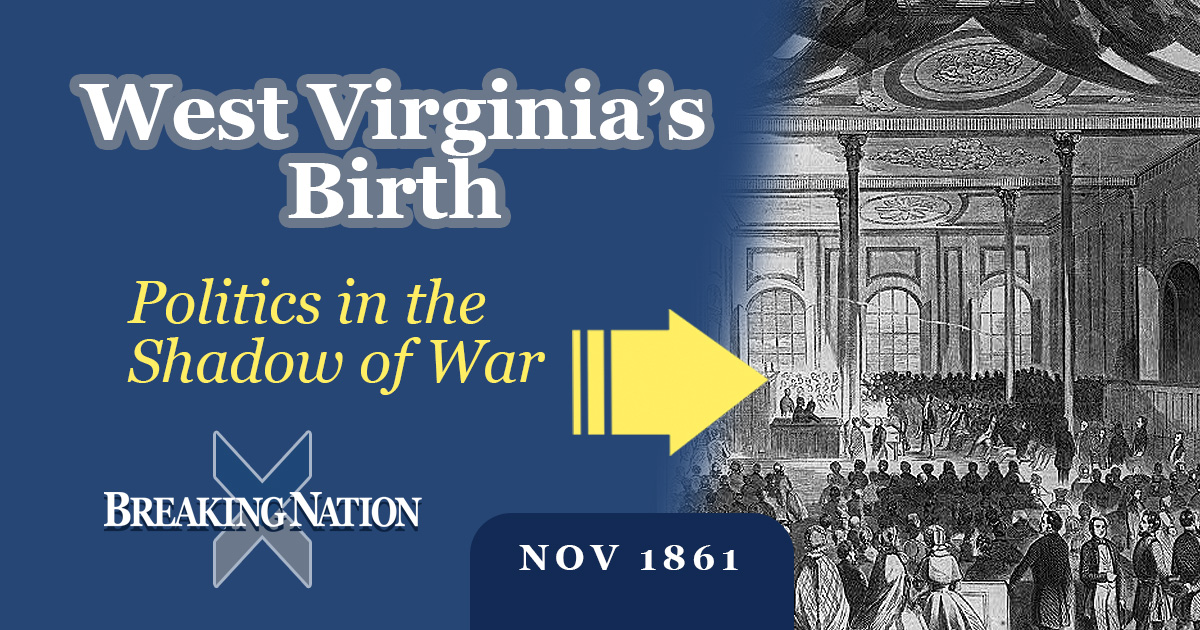Wheeling’s Bold Stand: Loyalty, Law, and Liberty

The Wheeling Convention of November 1861 stands as one of the most pivotal yet often overlooked moments in the Civil War, setting the stage for the creation of West Virginia and reshaping the Union’s political map. While the Confederacy was consolidating control over Virginia’s eastern and southern regions, the northwestern counties—largely mountainous, economically distinct, and culturally aligned with the Union—found themselves politically marginalized. These counties had long resisted Richmond’s dominance, feeling underrepresented in a state government that seemed increasingly sympathetic to secessionist sentiment. The Wheeling Convention emerged from this frustration as a decisive act of regional self-determination.
The convention, convened initially in May and then again in November 1861, brought together delegates from 32 northwestern counties. These men faced a delicate task: they needed to navigate the treacherous legal and constitutional waters of secession and state formation without giving the impression of undermining the Union. The November meeting was particularly significant because it formalized the creation of the Restored Government of Virginia, a loyalist administration that claimed legitimacy over all of Virginia but operated from Wheeling. By asserting this continuity of government, the convention provided the constitutional and political justification to eventually form a separate state.
Beyond legal maneuvering, the Wheeling Convention had profound symbolic significance. It demonstrated that the Union could retain the loyalty of critical regions within seceding states, offering a counter-narrative to the idea that secession was inevitable or universally supported. It also showcased a unique aspect of American federalism: the capacity for regions to leverage constitutional processes to protect local interests while remaining within the Union. The convention’s careful political strategy—balancing local autonomy with national loyalty—would culminate in Congress approving West Virginia’s statehood in 1863, a remarkable achievement in the midst of a brutal civil war.
Finally, the Wheeling Convention set a precedent for civil and political agency in times of national crisis. It illustrated how communities could assert self-determination, use legal structures creatively, and navigate contested authority without resorting immediately to armed conflict. In retrospect, Wheeling was more than a procedural assembly; it was a bold assertion of regional identity, legal ingenuity, and political courage. Its legacy is not merely the birth of a new state, but a vivid example of how democratic processes and strategic diplomacy can shape history even amid the chaos of war.
Breaking Nation: A Civil War Podcast explores the American Civil War, its turning points, and our national memory. Discover full episodes, transcripts, and resources at www.breakingnation.com — your destination for in-depth Civil War podcast content and fresh perspectives on America’s past. Listen on Apple Podcasts, Spotify and Amazon Music.




